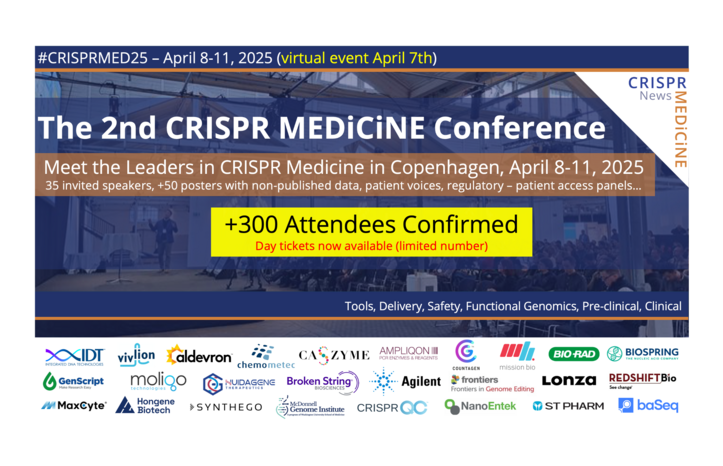Top picks
Japanese scientists have succeeded in CRISPR-Cas9 allele-specific chromosome elimination to rescue trisomy 21 – responsible for Down syndrome – in human cells . By selectively targeting the extra chromosome in induced pluripotent stem cells and fibroblasts, researchers achieved efficient removal, restoring gene expression and cellular function. Temporary knockdown of DNA damage response genes enhanced chromosome loss. This approach, applicable to nondividing cells, could pave the way for future trisomy 21 interventions.
Using CRISPR-Cas9, researchers developed a rat model of Cri du Chat Syndrome (CdCS) with a 2q22 deletion, replicating key patient traits . The model exhibits cognitive, social, and anxiety-related deficits linked to neuronal and immune dysfunction in the hippocampus and medial prefrontal cortex. Early AAV- Ctnnd2 gene therapy improves cognition but has limited efficacy. This study advances CdCS research and therapeutic prospects.
Unlock Premium CMN Content Today with a CMN+ Subscription
Already a CMN+ subscriber? Log in here
Subscribe now
Subscribe to CMN+ and get access to premium CMN Content, CRISPRMED Recordings, Clinical Trial Database, Special offers ….
Continue reading the original article at: crisprmedicinenews.com

